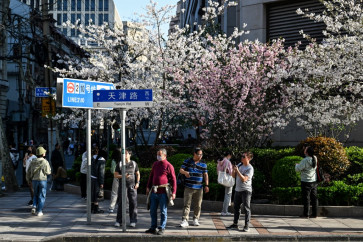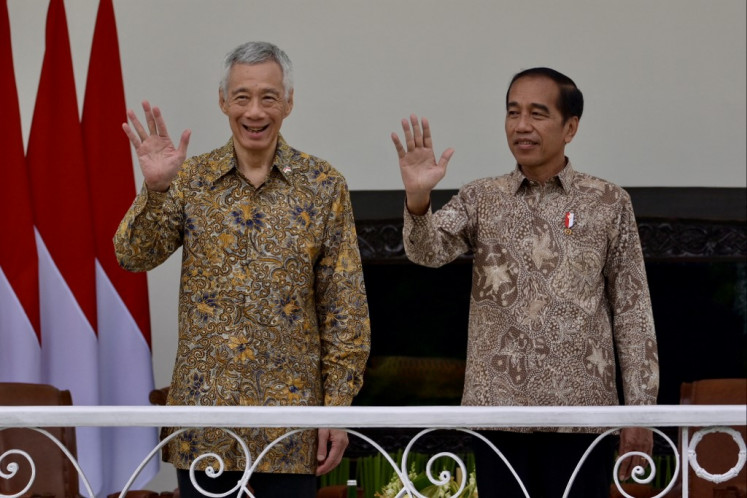Govt mulls preferential import treatment for favored nations
The government is considering exempting imports of horticulture produce from Australia, Canada and the US from the obligation to enter the Indonesian market through specific ports as demanded by a new regulation set for implementation on June 19
Change Size

T
he government is considering exempting imports of horticulture produce from Australia, Canada and the US from the obligation to enter the Indonesian market through specific ports as demanded by a new regulation set for implementation on June 19.
The Agriculture Ministry’s Quarantine Agency chief Banun Harpini said on Tuesday that a process was underway to assess the risk of giving preferential treatment to signatories of the Mutual Recognition Agreement (MRA) that includes the three countries.
If all goes as planned, produce from Australia, Canada and the US would still be able to enter the local market through the country’s biggest trading gateway, the port at Tanjung Priok.
Under the MRA, horticulture imports are already exempt from complete-checking procedures, such as the supervision per consignment and sampling for laboratory checks.
In December, the Agriculture Ministry issued a regulation that would reduce horticulture import gateways from eight to four: Soekarno-Hatta International Airport in Tangerang, Banten; Tanjung Perak seaport in Surabaya, East Java; Belawan seaport in Medan, North Sumatra; and Soekarno-Hatta seaport in Makassar, South Sulawesi. Tanjung Priok port, which handles more than half of the horticulture imports, was excluded due to years of capacity overload,
resulting in poor supervision.
The regulation, aimed at improving health and security supervision at import gateways, was initially to be implemented in March. However, due to formal complaints lodged by Australia and the US, the government decided to give more time for local as well as overseas partners to prepare for the implementation.
“Giving preferential treatment for MRA signatories is a common practice at the international level,” Banun said in response to The Jakarta Post’s inquiry as to whether the treatment was granted under international pressure following the issuance of the regulation.
Benny Kusbini, the chairman of the National Horticulture Council, questioned the government’s decision to allow MRA partner countries to receive preferential treatment, calling the policy on horticultural imports “half-hearted”.
“I guess this is a win-win solution taken by the government amid pressures put on them following the import gateway limitation,” he said.
Agricultural expert Khudori voiced a similar concern, questioning the government’s reasoning behind the special treatment for a privileged few.
“The reason to reduce the number of ports was not solely related to quarantine matters. It was particularly because Tanjung Priok port has been overloaded in receiving imports so that it will not resolve the problem if the port is still open to certain countries’ imports,” he said.
Khudori added that policy consistency was important and said the practice of limiting import gateways was a common measure at the international level, citing the designation of Rotterdam, in the Netherlands, as a gateway to European countries as an example.
Indonesia imported US$600 million worth of horticulture products in 2006, rising to $1.7 billion in 2011.









